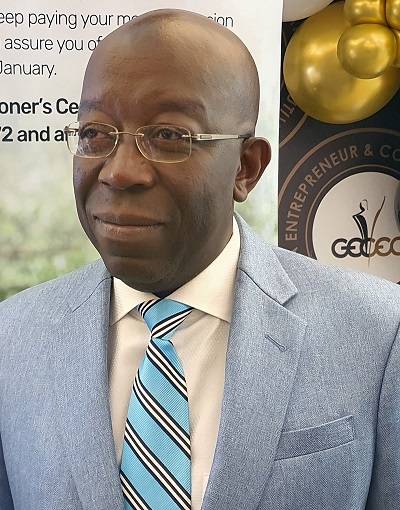The Social Security and National Insurance Trust (SSNIT) is working to build more capital buffers in the next couple of years to ensure the sustainability of the Trust, the Director General, Dr John Ofori-Tenkorang, has said.
“We had some headwinds vis-a-vis dividends from the banks last year. But we believe this is temporary and the next couple of years we will be back to trend,” he said in an interview with journalists after the 2023 Employers’ Breakfast Meeting in Accra on Tuesday.
The programme, the fourth to be organised by SSNIT since it was started in 2019 and attended by employers, was on the theme “Providing Pension for all, the role of the Employer”.
In spite of the inability of some banks to pay dividend to SSNIT last year, Dr Ofori-Tenkorang said the Trust would be able to pay pensions.
“SSNIT will keep faith with contributors and ensure that when pension fall due we pay them,” he said.
On the Domestic Debt Exchange Programme for holders of pension funds, the Director General said the terms of the offer offered by the government were better than the first.
“SSNIT holds a little less than a billion of government paper, we will look at it and then subscribe to the programme and make sure that we have enough liquidity to be able to pay our immediate benefits when they come due,” Dr Ofori-Tenkorang stated.
He said SSNIT’s holdings in the government paper represented less than ten per cent of the GH₵14 billion net worth of the Trust. Dr Ofori-Tenkorang said the source of revenue, which the Trust used for the payment of pensions, were diversified and came through fixed income assets, contributions from members and investment income.
Highlighting the operations of the SSNIT, Dr Ofori-Tenkorang said private sector members on SSNIT had surpassed public sector workers.
He said the active private sector contributors of the SSNIT Scheme currently stood at 1,207,111, constituting 62.57 per cent, while the public sector contributors stood at 694,436, representing 36.01 per cent, and the self-employed at 27,501, constituting 1.43 per cent.
BY KINGSLEY ASARE




















Discussion about this post